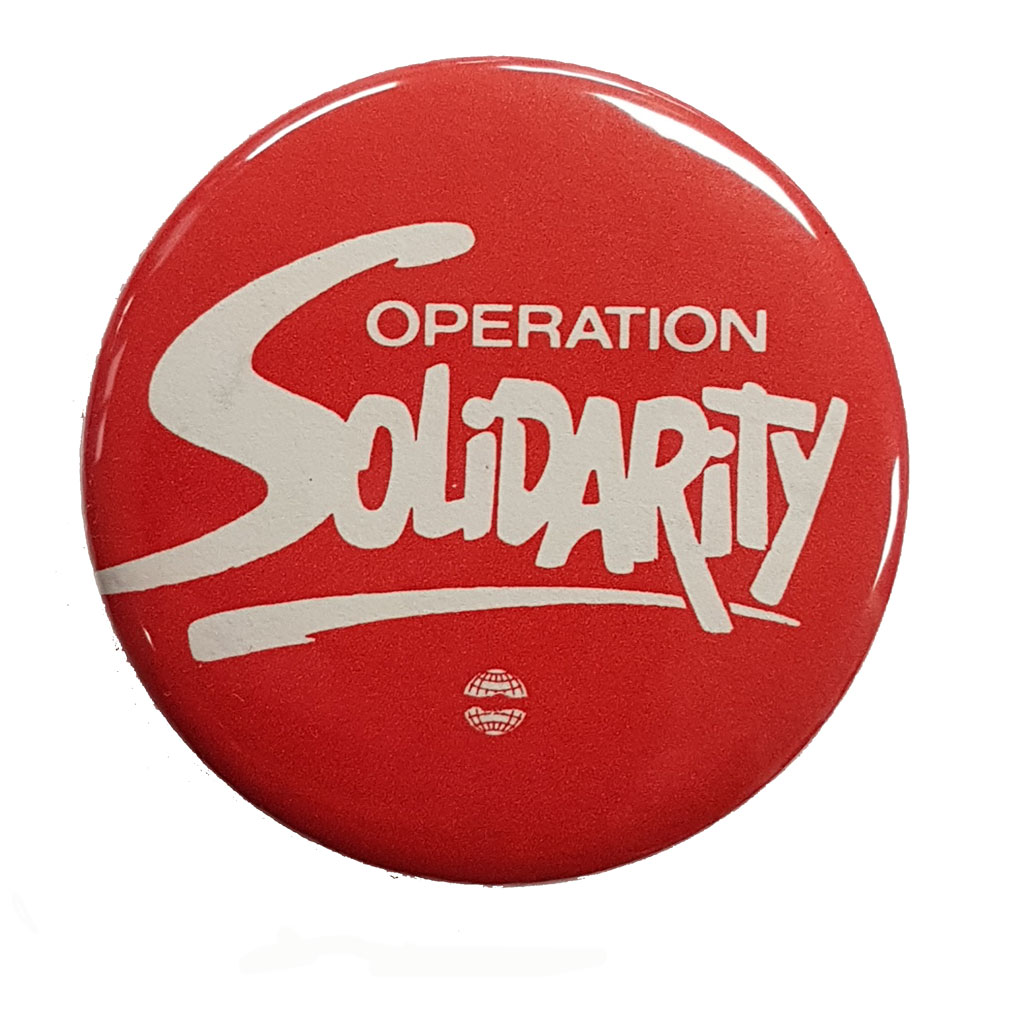
If there was a single event that solidified in labour’s mind that right-wing ideology and racism were connected, it was the July 1983 provincial budget in BC. No less than twenty-six pieces of legislation were tabled, representing a premeditated strike on all those elements of society the newly re-elected Social Credit government had never really liked: social justice, community activists, rights of the disadvantaged and public employees and their unions.
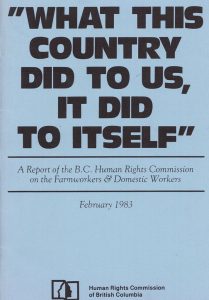
In February 1983, the BC Human Rights Commission published a report that was an historic recognition of systemic legislative racism in government policies. The Commission supported the elimination of all legislation that discriminated against farmworkers. When the Human Rights Branch and the Human Rights Commission were eliminated in July, it was an unthinkable assault on British Columbians.
The response by labour and community groups was sudden and unprecedented. With its distinctive red and white banner, Operation Solidarity and the Solidarity Coalition were soon household names and galvanizing forces across BC.
Both the Canadian Farmworkers Union and the BC Organization to Fight Racism were active participants in the historic 1983 Solidarity movement in BC. Pictures of farmworkers during the rallies as well as farmworker union organizers show that there was considerable support from South Asian Canadians for the movement. Sadhu Binning took his entire family and his friends to be part of the moment.
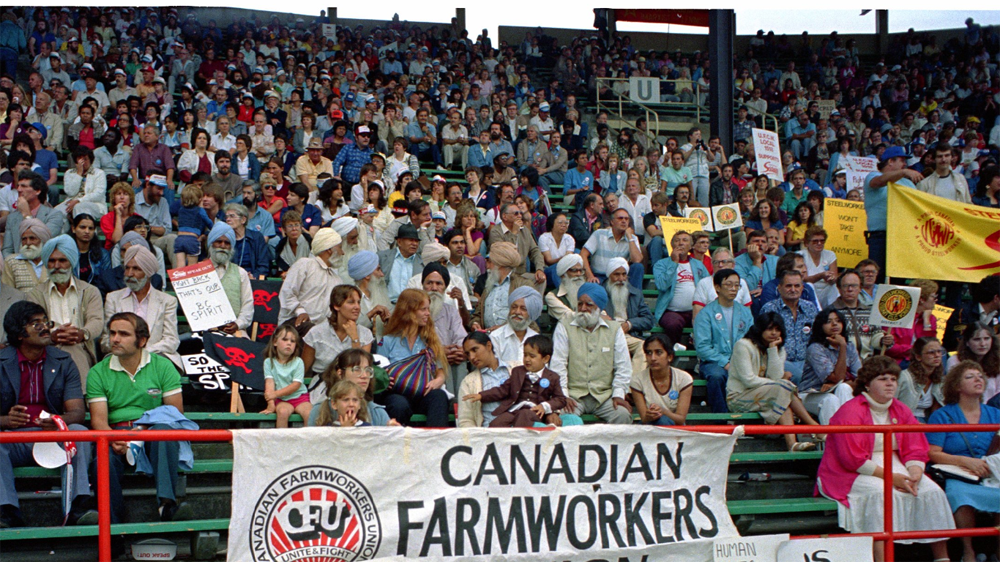
“1983 is a memorable year, this whole period of Solidarity… [the] Solidarity movement was primarily the trade union movement, but had the support of immigrant communities, workers of colour, because, you know, this was an attack on basically a whole society by this government, you know, doing away with the Human Rights Commission where other governments would establish Human Rights Commission. And they were massive, massive demonstrations, 50,000 people at that point; BCOFR was there, BCOFR would take its members, its banner to these demonstrations, Canadian Farmworkers Union had been established and we would take, you know, our banners and be part of this great movement.”[1]
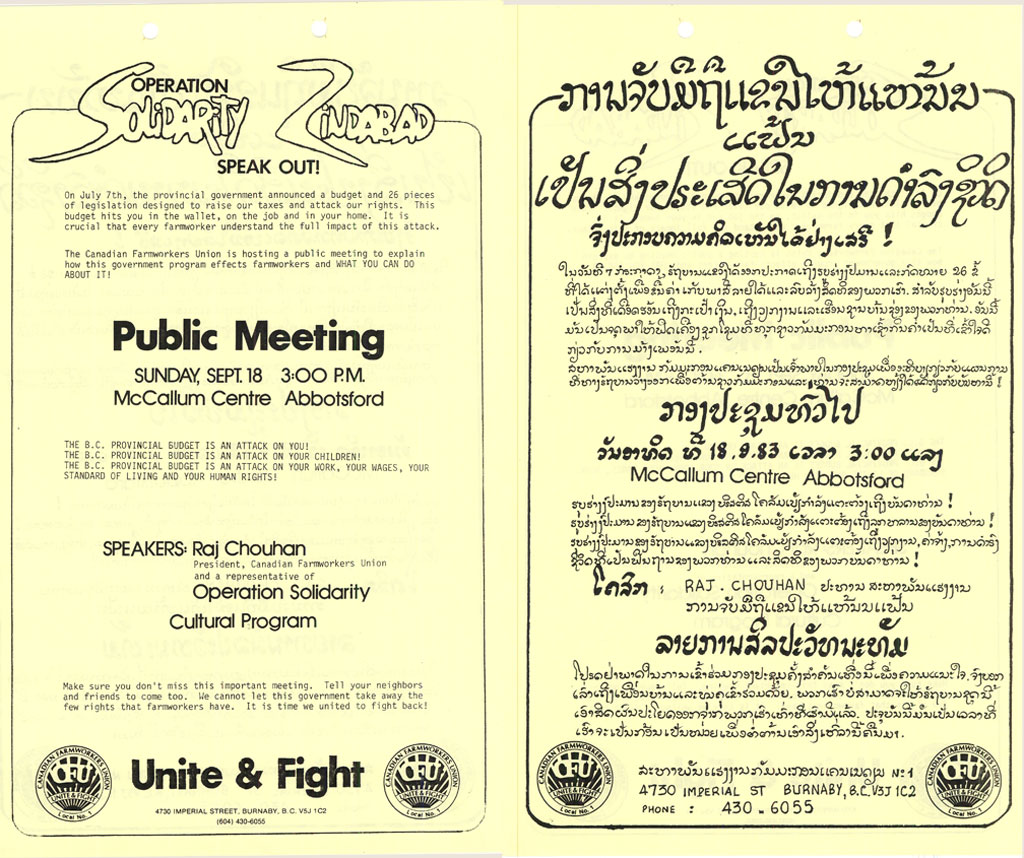
Paul Gill, son of Charan Gill and former CFU organizer, described how the Solidarity Movement built firm relationships between the CFU and other trade unions.
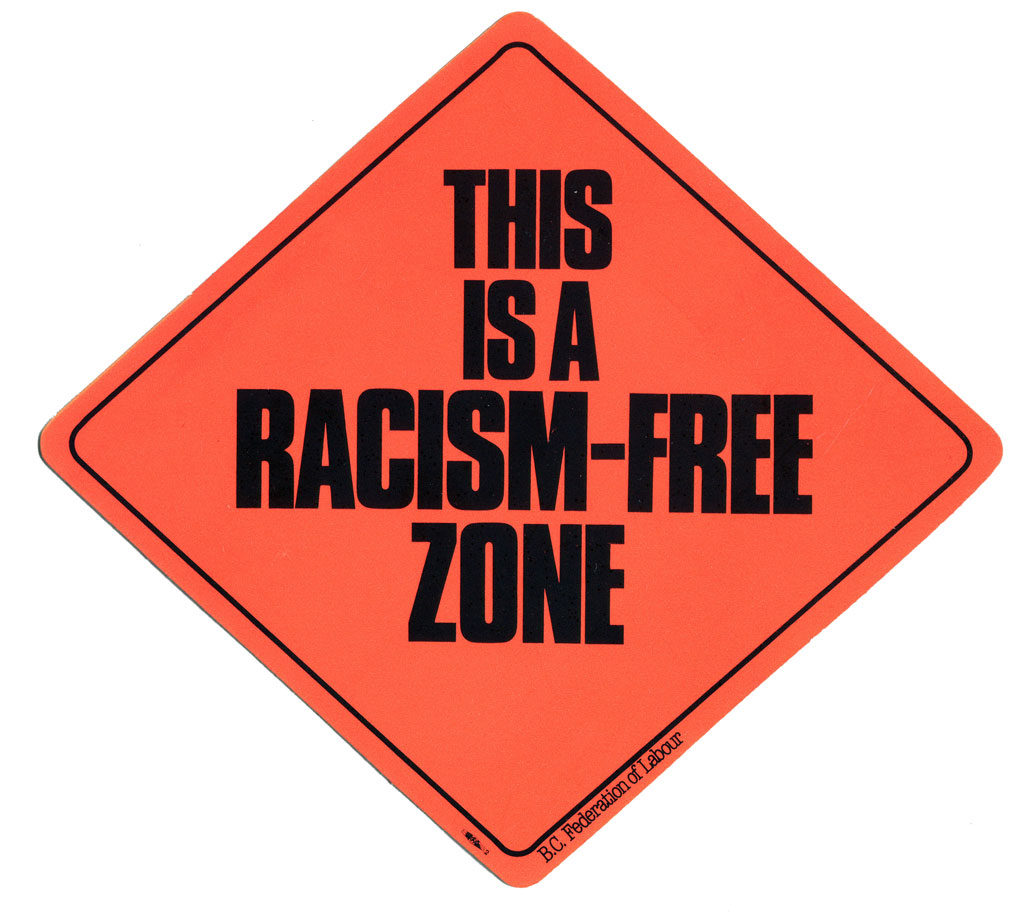
“…you could hardly go to a lunch room at a worksite independent of which union it was and not see posters talking to people about the importance of treating each other with dignity and respect…”[2]
